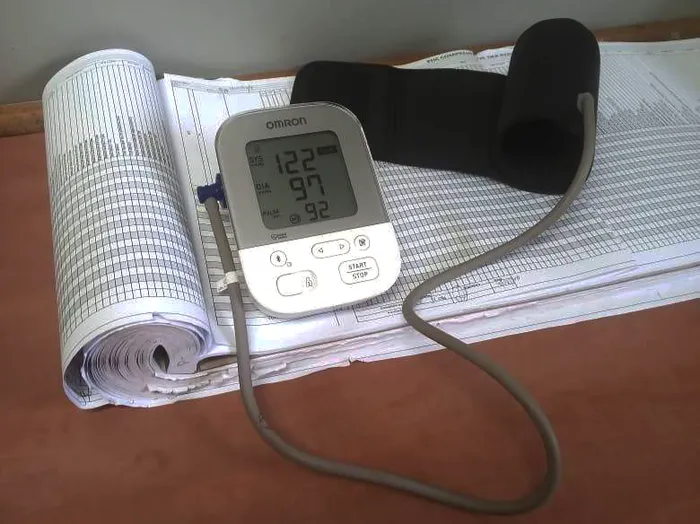Department denies shortages of testing kits at clinics

NPSWU says the blood pressure machines provided are not suitable for clinical use
Image: Supplied / NPSWU
PATIENTS have cited a shortage of equipment at Ma Doyle clinic in Galeshewe, including blood pressure machines, oxygen machines, blood glucose tests, pregnancy tests and HIV/Aids tests.
A patient said that they had experienced shortages for the past four months.
“Children and elderly patients are made to wait the whole day only to find out that there are no tools of trade.”
National Public Service Workers Union (NPSWU) provincial organiser Thapelo Thole said that Ma Doyle clinic was given two “do-it-yourself blood pressure machines” meant for home use instead of proper medical equipment after the previous blood pressure machines broke.
“These machines were not designed for heavy workloads.”
He stated that after 20 uses, the machines produced false and unreliable readings thereby compromising both medical staff and patients.
“This makes health facilities vulnerable to negligence suits while the lives of hundreds of patients are under threat as they could be given incorrect diagnoses and the wrong medical treatment. The Department of Health is gambling with the lives of our communities. Workers are at risk of losing their jobs for mistakes that come from poor quality machines.
Thole called for proper medical-grade blood pressure machines to be supplied at every clinic as well as a full audit of the procurement of equipment.
“How can billions be allocated, yet frontline clinics are left with scrap? Who is benefitting while patients suffer?”
Claims refuted
Acting chief director of district health services at the Northern Cape Department of Health Zama Kiti refuted all claims made regarding procurement of substandard equipment for health facilities across the province.
She indicated that all clinical equipment was procured according to the specifications of clinicians.
“Upon delivery and receiving the equipment, end users are expected to advise on the compliance and appropriateness of the product. When issues related to delivery of sub-standard equipment are raised, an investigation is immediately conducted with appropriate recourse and corrective steps instituted, without any delay.”
She added that 10 clinical engineers had recently been appointed in the five districts of the province to ensure that equipment was procured and maintained.
“The department has not experienced any stock outs of glucose test strips or haemoglobin testing supplies. All other facilities in the Frances Baard district have these items in stock and continued services uninterrupted.”
Kiti stated that the department made provision in its budget allocation to prioritise essential services.
“The items associated with HIV services are procured through the national transversal tender. This seeks to insulate the department from threats of shortages.”
She pointed out that the department was not familiar with the ‘NPSWU’ union.